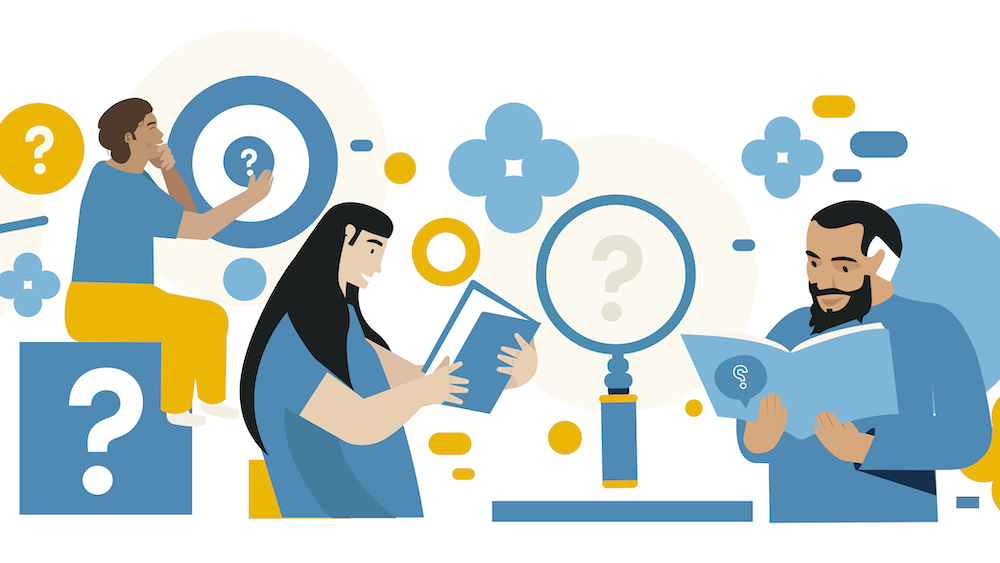As we grow older, our curiosity can fade. Yet research shows that it remains essential to our wellbeing. Here, we explore how to reignite that inquisitive spark
As children, we’re full of questions. Why do ladybirds have spots? How do planes stay in the air? Who invented sherbet? But, as we age, that willingness to ask slowly ebbs away.
The late Sir Ken Robinson, author and education guru, believed that the way we’re taught is at fault. He said: “Curiosity is the engine of achievement,” and felt that our school’s mistaken focus on knowing facts smothered our innate desire to find things out for ourselves.
Some of our diminishing curiosity is a casualty of brain economy. As we learn, our young brains lay down neural pathways, energy-saving shortcuts to knowing, which reduce the necessity to keep discovering afresh. And as adults, our responsibilities can zap the necessary energy, interest, and time to pursue unanswered questions.
Yet curiosity remains key to flourishing. It led our ancestors to craft tools, spark fire, farm, voyage, experiment, and innovate. Importantly for us in the modern world, research shows that curiosity reduces anxiety and increases brain plasticity, social connection, empathy, wellbeing, and life satisfaction. Leaving only one question: how can we rekindle it?

Read, do, or think something different
Wander into a library and pick a book at random. Do you feel a prickle of curiosity? Check the book out and discover more. Walk down a street in your town that you’ve never visited, and consider the houses, imagining their history and the people who might live there. Try a recipe from a different cuisine. Learn a new language. Novel activities build fresh neural pathways in our brains, boosting our learning and memory functions.
Do a Da Vinci
The Renaissance scholar, painter, sculpture, engineer, scientist, and anatomist Leonardo da Vinci reportedly never left home without his notebook to jot down questions that occurred to him while he was out. Rather than ignoring his musings, he recorded them to pursue later. It seems likely that indulging his wide-ranging curiosity led to his mastery of so many disciplines. Why not capture your curious thoughts, and investigate them when you have a moment? You may be surprised at how alluring this becomes, leading you into unexplored topics, and bringing fresh interests into your life.
Ask more questions
Big questions, small questions, even questions that might seem silly. Ask colleagues, friends, and family, because it’s one of the most dynamic and exciting ways to find things out. People love to share what they know. And better still, they’re likely to offer personal experiences, insight, and passion, too, broadening your understanding in unexpected ways. Take a leaf out of Da Vinci’s notebook, which listed the names of all the people he intended to ask for insight on the puzzles that popped into his mind.
Learn how to listen actively
Instead of leaping in with your take on things, hold back and listen to someone’s outlook, or experience. You might feel angry or shocked, but step away from judgement, and continue paying attention. The more you listen, the more your curiosity can grow, and with it the opportunity for fresh understanding and empathy. You might be surprised to find your own opinions changing simply by giving your curiosity free rein to see another side to the situation. Your relationship with others is also likely to improve, making you feel much more connected.
Ask yourself...
Turn your curiosity inwards. Why do I feel uneasy talking about a memory? Where is my low mood coming from? Self-reflecting in a curious, non-emotional way is great fostering understanding about our own anxieties, moods, and motivations. Posing questions in a non-judgemental way, as we might to a friend in need, can help us discover how we really think and feel about things, and even suggest different ways to behave. Take five minutes a day to discover more about who you really are. It’s a great first step towards better emotional and mental health.
To connect with a life coach to discuss ways that curiosity can improve your wellbeing, visit lifecoach-directory.org.uk


Comments